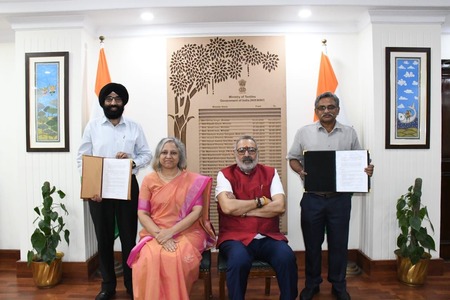
Scientists develop biodegradable health monitoring e-textiles
YarnsandFibers News Bureau 2025-01-06 14:42:57 – United KingdomA research team from the University of Southampton and the University of the West of England (UWE) Bristol has introduced a new concept for wearable electronic textiles (e-textiles) that are both environmentally friendly and biodegradable.
The study, conducted with support from the universities of Exeter, Cambridge, Leeds, and Bath, presents an innovative method for creating “smart, wearable, and eco-friendly electronic textiles” (SWEET). It introduces a new sustainable method for fabricating inkjet-printed SWEET textiles while analyzing their biodegradability and lifecycle impact.
Professor Nazmul Karim, from the University of Southampton’s Winchester School of Art, explained the recycling issues with traditional e-textiles. Metals like silver, which are often used, do not degrade easily. Karim stated that their new approach selects sustainable materials and manufacturing methods to allow the fabric to break down naturally after disposal.
The study showcases SWEET’s ability to continuously monitor vital signs, such as skin temperature and heart rate. The team used Lenzing’s Tencel material as the base layer because of its biodegradable, renewable, and soft properties. Conductive materials like graphene and PEDOT:PSS polymer composites were inkjet-printed onto the fabric using water-based inks.
“Our e-textiles provide a sustainable option for continuous health monitoring, reducing the need for uncomfortable sensors and improving user comfort,” the study concluded. These textile-based electrodes offer a step forward in creating smart clothing that combines environmental consciousness with advanced technology.
Market Intelligence
Ask for free sample Report

experience
Customer Base
dedicated team
Countries Served Worldwide









